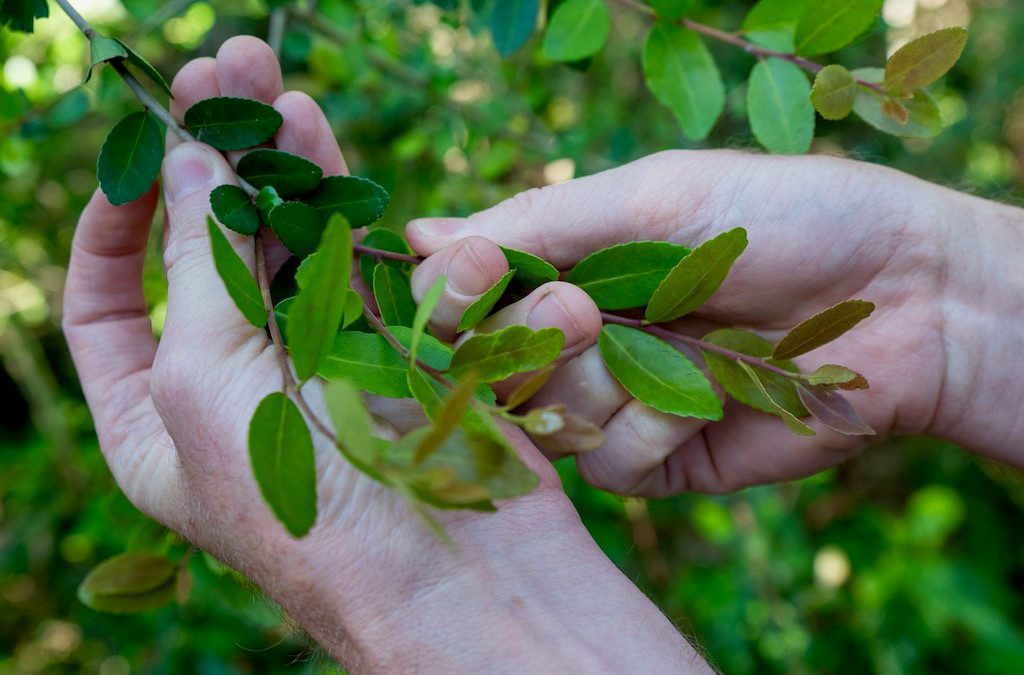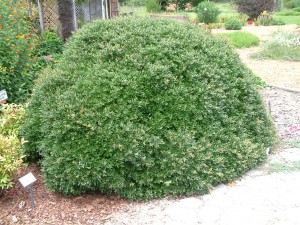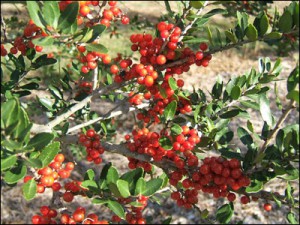
A natural caffeine that may be right in your backyard!

Yaupon hollies, Ilex spp., are a native plant to Florida that grow very well and abundantly in our local soils. The yaupon holly is one of the hardiest holly species found in Florida. You may see this holly grown as a tree, large or small specimen shrub, or even as a hedge. Using a low-input native plant like yaupon in the landscape can result in less nutrient pollution, reduced water use and resilience through drought, freezes, and hurricanes. This plant thrives in the southeast and is hardy up to USDA zone 7. They can even tolerate temperatures as low as 10F for short periods of time. Pollinators are also attracted to the yaupon flowers – if you are trying to attract bees for other crops on the farm, this is the plant for you! Growing yaupon is much easier than other crops because the species can handle a variety of conditions, from full sun to light shade and soil from dry to wet. Growth rate is moderate when they are young and slows as plants age. Yaupon hollies are good for stabilizing the soil, preventing erosion, and providing a habitat for wildlife.
Yaupon is a very old plant that historically has been used as an important food source, medicine and even a ceremonial item by Timucua Indigenous groups for thousands of years. The Timucua people of Florida believed that yaupon purified the mind and body of those who drank it. Yaupon is the only naturally caffeinated plant species grown in the United States. It provides a balanced caffeine boost without the bitter tannins that you get from regular tea. Yaupon contains 30% less caffeine than coffee but provides a dose of theophylline and theobromine. These 2 compounds provide an energy that will not cause jitteriness and caffeine crash that other caffeinated beverages can give you. There are also dozens of vitamins, minerals, amino acids, polyphenols and antioxidants to protect the body, and these can help calm the mind as well.
‘Schilling’s Dwarf’ is a yaupon cultivar perfect for homemade tea production. The plant gets no taller than four feet and four feet wide. While you can make yaupon tea from any yaupon holly cultivar, all ‘Schilling’s Dwarf’ clones are also all male, which means no berries will get in your way of harvesting leaves. To prepare tea from the yaupon plant, leaves are removed from the stems and lightly washed, discarding any berries and debris. The stems may also be used and will not change the flavor. Next you will dehydrate leaves and stems by air or sun drying. Leaves can be stored whole or crushed and blended into smaller pieces if desired. These leaves produce a caffeinated beverage that is similar to green tea with grassy flavors. If these same leaves are lightly roasted, over a hot pan or in the oven, it will produce an earthier beverage that can have notes of malt and toasted coffee.
For more information on Native Yaupons and making tea, contact your local UF/IFAS County Extension Office.



